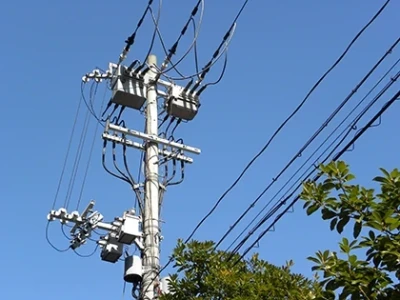FERC Complaint Targets Duke, PJM Transmission Planning

A coalition of large energy consumers and ratepayer advocates has filed a complaint with the Federal Energy Regulatory Commission (FERC), urging the agency to prohibit transmission owners from independently planning "local" transmission projects exceeding 100 kilovolts (kV). The coalition argues that such local planning, lacking independent oversight, leads to inefficient and costly transmission development, resulting in unjust and unreasonable rates for consumers.
Background
Transmission planning involves determining the necessary infrastructure to transport electricity from generation sources to consumers. In the United States, this planning is typically conducted by transmission owners, which are often investor-owned utilities. These entities are responsible for identifying and implementing transmission projects to meet local reliability needs. However, the coalition contends that this approach can result in projects that are not cost-effective and may not represent the most efficient solutions for consumers.
The Complaint
The coalition's complaint highlights several concerns:
-
Lack of Independent Review: Local transmission projects often undergo minimal independent scrutiny, leading to potential inefficiencies and higher costs.
-
Incentives for Overinvestment: Transmission owners may be motivated to invest in local projects due to the absence of competitive bidding and the limited review provided by FERC's formula rate process.
-
Regional Planning Deficiencies: The current regulatory framework allows local planning exceptions to override regional planning rules, hindering the development of more efficient regional solutions.
The coalition proposes that FERC mandate regional planning conducted by an independent transmission system planner to ensure that transmission projects are both appropriate and beneficial to consumers. They suggest that regional transmission organizations and independent system operators could serve as independent transmission planners if they meet specific criteria.
Industry Response
Larry Gasteiger, executive director of WIRES—a transmission sector advocacy group—expressed concerns about the potential impact of the complaint. He stated that the complaint could burden FERC and all transmission developers with unnecessary and inefficient new processes, diverting resources from ongoing regional transmission planning and compliance with existing FERC orders.
Regulatory Context
This complaint follows recent developments in transmission planning and oversight:
-
FERC's Order 1920-A: In November 2024, FERC revised its Order 1920 on transmission planning and cost allocation to grant state utility regulators a larger role in the decision-making process. The revised rule requires transmission providers to include state input on the development of future scenarios used in long-term regional transmission planning.
-
FERC's Rejection of PJM's Proposal: In December 2024, FERC rejected proposals that would have given PJM Interconnection transmission owners more control over the grid operator’s transmission planning process. The commission expressed concerns about the potential for undue influence by a single stakeholder group, specifically the PJM transmission owners, over transmission planning and expansion.
Implications
The coalition's complaint underscores ongoing debates about the effectiveness and fairness of transmission planning processes. Proponents of independent planning argue that it can lead to more efficient and cost-effective transmission solutions, ultimately benefiting consumers. Opponents, however, caution that such changes could introduce new complexities and delays into the transmission development process.
As FERC reviews the complaint, stakeholders across the energy sector will be closely monitoring the potential implications for transmission planning and the broader regulatory landscape.









